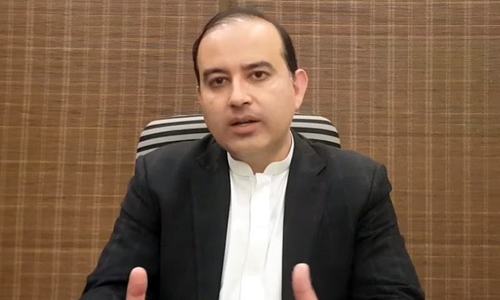The Election Commission of Pakistan (ECP) on Thursday released the schedule for holding the Senate elections, announcing March 3 as polling day.
According to the notification, Feb 12 to Feb 13 is the time frame for candidates to file nomination papers with the returning officer. The names of the nominated candidates will be published on Feb 14, followed by the scrutiny process from Feb 15 to Feb 16.
Feb 17 and Feb 18 have been given as the dates for filing appeals against the acceptance or rejection of the nominations. The appeals will be disposed of by the tribunal on Feb 19 and Feb 20.
On Feb 21, a revised list of candidates will be published with Feb 22 as the last date for withdrawing candidature.
A total of 52 senators in the house of 104 are set to retire on March 11 on completion of their six-year term. They will also include four of the eight senators from the erstwhile Federally Administered Tribal Areas (Fata). As the seats representing Fata will not be filled due to merger of the tribal areas with KP in May 2018, the Senate strength will shrink to 100.
Therefore, polling will be held to elect 48 senators — 12 each from KP and Balochistan, 11 each from Punjab and Sindh and two from Islamabad. Polling will be held to elect seven members on general seats, two women and two technocrats in the four provinces. Besides, the election on one minority seat each in KP and Balochistan will also be conducted.
Over 65 per cent of the senators who are set to retire on March 11 after completing their six-year constitutional term belong to the opposition parties.
Controversy over open ballot
The announcement comes amid a simmering controversy regarding a recent presidential ordinance for open ballot in the Senate polls. A presidential reference on the same subject is also currently being heard by the Supreme Court.
Opposition parties as well as the lawyers fraternity rejected the government's move to promulgate an ordinance, saying it was an attempt not only to dictate the judiciary but also to undermine the Constitution and parliament.
Interestingly, the text of the ordinance states that it has “come into force at once”, but an amendment to Section 122 of the Elections Act 2017 has made it conditional on the final decision of the Supreme Court on the presidential reference.
The ordinance was promulgated after the government, despite clearly lacking numbers in the parliament, had tabled the 26th Constitution Amendment Bill in the National Assembly to hold Senate polls through open vote without trying to take the opposition on board.
The opposition parties had not only rejected the move, but lodged a strong noisy protest in the National Assembly when Speaker Asad Qaiser put the bill before the house for a general discussion.
Speaking to Dawn, an ECP official said the commission had opposed the idea of open voting for the Senate elections.
He said it was strange that the apparently confused government through the president sent a reference to the Supreme Court, tabled a bill in the National Assembly to provide for open voting in the Senate, and then got the ordinance promulgated.














































